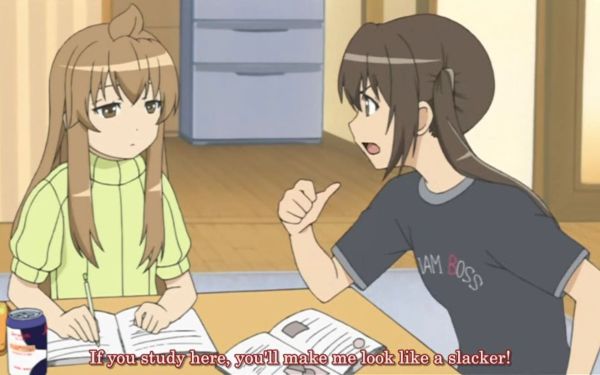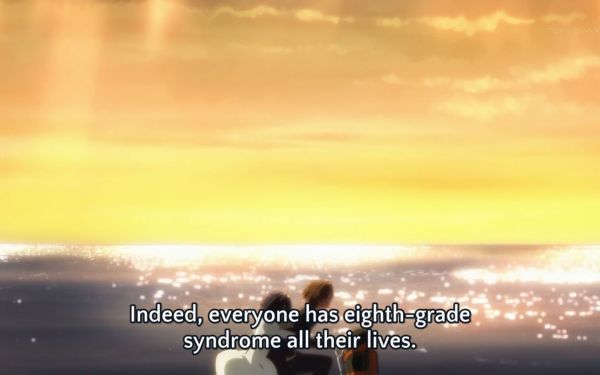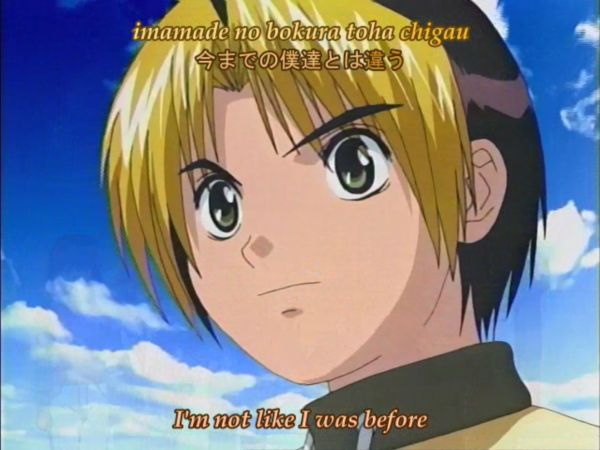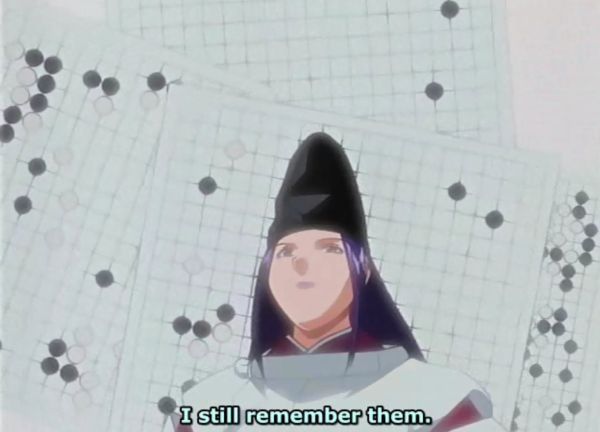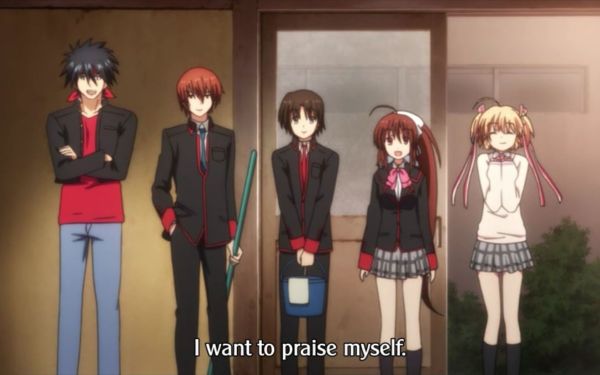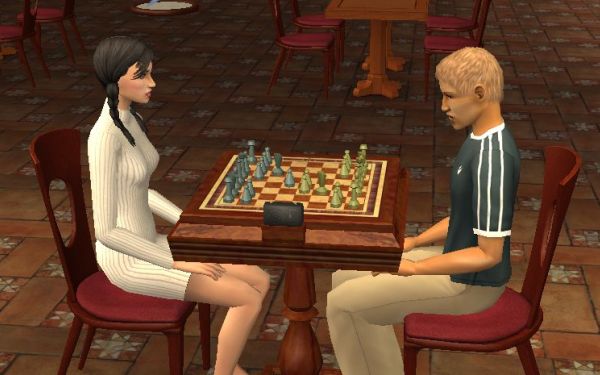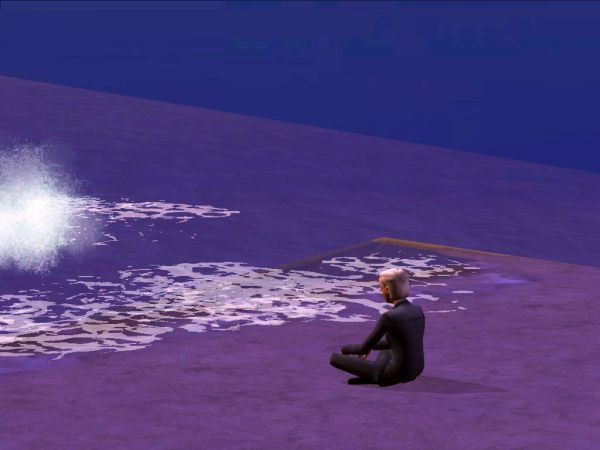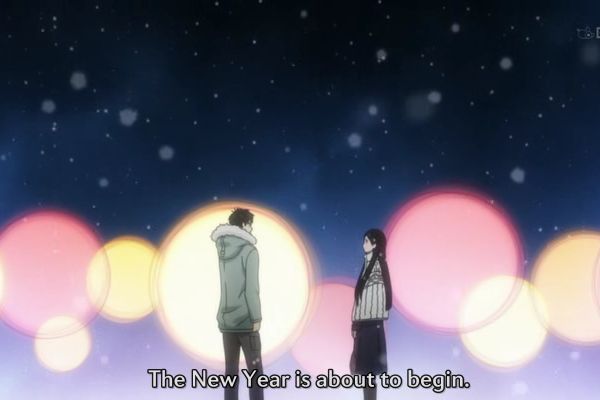
The new year is about to begin. Now if only I could remember the old one.
This was the year Netflix came to Norway. Actually, that happened in the fall. Things must have happened before that too. I think I read books. I am not sure how many, but a number of them. Most of the books I bought, however, I did not read out. I read part of them and then decided to read the rest someday. Unfortunately there are only seven days in the week, and none of them is Someday. I think Someday should be between Saturday and Sunday, judging from its name. That would solve a lot of problems, but only if it really was an extra day and not taken from our limited number of other days.
Anyway, with Netflix offering free gawking for the rest of the year to its early adopters in Norway, I finally got to see Groundhog Day again. It is one of the few movies that I could see over and over. But unfortunately I don’t have time to do that, and with Netflix I have even less time than before. I definitely wish Groundhog Day was an on/off feature in my life. I would go to bed with my Groundhog Day switch in the “on” position 99 days out of 100. I really love my days, but they are so few and short. If I could go through them 99 times each, I am sure I could solve more cases at work, and read more books, and learn to play Go reasonably well, and learn thousands of Japanese words, and watch every Doctor Who episode on Netflix, and find out to every feature on my Galaxy Note 2.
Right! I bought a Galaxy Note 2 this year. It is an amazing little thing, indistinguishable from magic. It has a lot of features that I haven’t taken the time to find out, but those that I have found out are easy and fun to use. Basically it is… Shiny. It radiates a small amount of happiness which kind of seeps into you simply by holding it in your warm little hands. Something like that. I guess I can sympathize more with the brainwashed iPhone users now. Except they are deluded fools, mistaking a false shiny for the True Shiny…
(Please do not take this too seriously. It is bad enough when the Apple worshipers do. ^_^)
Now I remember something from earlier in this year: I bought a Galaxy Tab 7.7 tablet as well. It was Shiny, but not nearly as Shiny as the new Note. Well, the hardware is extremely Shiny, but the operating system is much too old. I think it is called Honeycomb or something, actually it is so old that I don’t remember what it’s called. It’s a version of Android at least. In most of the world it has been upgraded to Android 4.0, Ice Cream Sandwich. But here in Norway I have never had the option to upgrade. Because of this I am probably not going to buy a tablet or cell phone that is not a Nexus ever again, unless it is incredibly Shiny. (Nexus devices are automatically upgraded when a new version of the operating system is available.)
Another Shiny thing that arrived this year was Dragon NaturallySpeaking 12. Actually the last three or so versions of Dragon have been certified Shiny, as far as I am concerned. But this speech recognition system is growing steadily more Shiny with each new version (although version 11 was mostly an improvement in the user interface rather than the speech recognition engine itself, in my experience at least.) I love the things that make me feel that I am living in the future, and this is one such thing. I physically cannot speak much, because I have spent so many years in silence. But on my days off I can dictate several paragraphs, and I rather enjoy doing so. For ordinary humans who speak incessantly anyway, this must be a godsend.
I mentioned learning to play Go, further up in the text. Yes. This fall was my longest and most serious attempt to learn the ancient Asian strategy game, which takes five minutes to learn but centuries to perfect. I watched the 75-episode anime Hikaru no Go and even read the manga to find out what happened after the anime ended, immersing myself in the serious Go-study atmosphere. For many weeks I watched other people’s games on Pandanet IGS (Internet Go Server), mostly high-ranking players so I could absorb their style, but also some low-level players (by IGS standards, at least) so I could learn from their mistakes. This was a part of my daily routine for weeks. I printed out game record forms (which are not called Kifu Paper, but this is the best phrase to use to search for them on the Net) and recorded some of the high-ranking games or at least the first part of them. I bought a physical Go board (goban) so I could replay those recorded games with actual Go stones (although they turned out to be plastic, not stone) and learn with more of my senses. I studied web sites with advice and strategies for beginners. Week after week I kept it up. And now and then I would play a game against my Galaxy Tab on the lowest difficulty setting. And it would crush me mercilessly, every time.
I continued until November, when I wrote the first draft of a novel about Go, Happy Science and the Japan that only exists in our hearts. And since then I have practically not touched the game. Or the novel.
***
I probably did something in summer, and spring, and last winter. But I have no idea what. Even without Groundhog Days, time flows differently for me, thank the Light. Half a year is like an ocean of time to me. Wait … I remember now. I was walking and jogging all over the town and surrounding countryside! And there was May 2nd.
On that day I had an appointment with a heart specialist in the city where I work. For some months before, I had an increasing number of tachycardia attacks, where my heart raced at double speed for no discernible reason for a quarter or two or three, before gradually slowing down over a number of hours. I never found out what the reason was. During the weeks before the appointment, I lost a few more pounds due to broad-spectrum antibiotics which did unspeakable things to my digestion. It has not quite recovered yet, but almost. Anyway, I walked with a device that measured my pulse and my blood pressure day and night, and had my heart and arteries scanned with ultrasound, and was tested on an exercise bike.
The doctor was, like all health personnel who have had anything to do with my heart, of the opinion that I was super healthy, like a high-level athlete. Not world level obviously, but enough to take part in national competitions. Obviously I don’t do that because of my asthma, but I decided to exercise as hard as my asthma allowed for an hour or more each day. And mostly I did so until November, when it rained almost every day, and December, when snow and ice settled on the roads.
Since I could not do physical exercise when I was a child (because of the asthma), I have assumed all my life that my heart never developed to its full strength either, and that it would probably stop working if I ran more than a few steps or walked up a long hill without stopping now and then. Sporadic tachycardia attacks and the occasional fainting confirmed my theory. So the notion that I have some kind of hidden superpower is kind of hard to get used to.
Speaking of superpowers, the superhero MMORPG City of Heroes was closed down on December 1st after over 8 years. I played it pretty much every week from the closed beta until last year, when I slowed down a bit. But I was still playing it off and on until the end. It was a game that attracted particularly noble souls, it seems to me. It even spawned its own charity. I have met some of them again in the other superhero MMORPG, Champions Online, but it is not really the same atmosphere. Well, perhaps it is … if not a hint, at least an opportunity to prune that particular part of my life. Perhaps. Someday.
But for now, I have Japanese vocabulary to Memrise. You have to have superpowers of the brain to learn an unspeakably alien language like that, it seems to me. But then, that fits my self-image after all (although I may be the only one having that image of me!)

